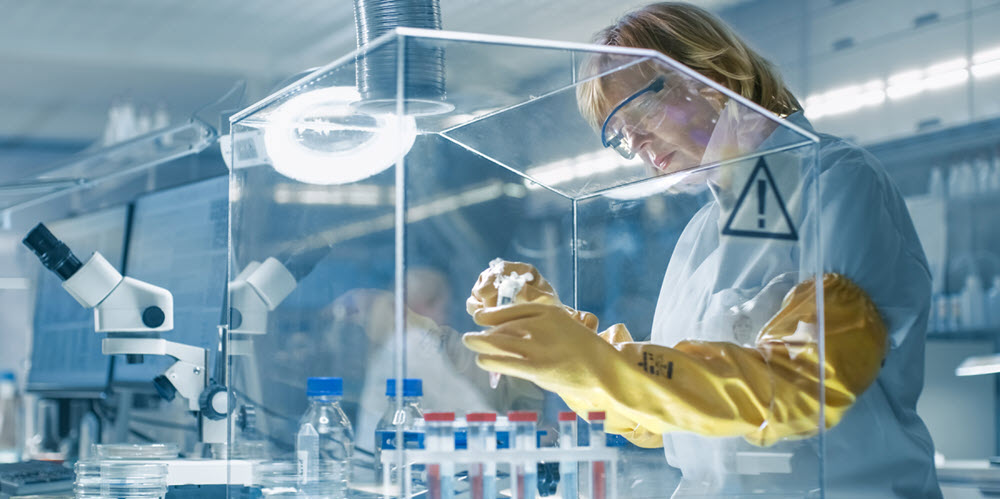EQMS Blog

Outsourced ISO Lab Consulting
In today’s competitive landscape, achieving and maintaining ISO Accreditation is crucial for laboratories across various industries. However, the process can be complex, time-consuming and resource intensive. This is where outsourced ISO lab consulting becomes invaluable. By leveraging the expertise of seasoned consultants, laboratories can streamline the accreditation process, ensure compliance, and focus on their core operations. This article explores the benefits, key considerations, and steps involved in outsourcing ISO lab consulting services.
Why Choose Outsourced ISO Lab Consulting
Outsourcing ISO lab consulting provides numerous advantages to laboratories seeking accreditation or maintaining existing certifications. Here are some key benefits.
Expertise and Experience
ISO standards are continuously evolving, and staying updated requires dedicated effort. Outsourced consultants specialise in understanding these changes and how they impact different laboratory environments. Their vast experience ensures that common pitfalls are avoided and best practices are implemented from the onset.
Cost-Effectiveness
Hiring a full-time, in-house ISO expert can be costly, especially for small to mid-sized laboratories. Outsourcing allows labs to access top-tier expertise without the overhead costs associated with permanent staff. Consultants are typically engaged on a project basis, making it a more budget-friendly option.
Time Savings
Navigating ISO standards like ISO/IEC 17025 can be time-consuming. Outsourced ISO lab consulting services expedite the process by providing structured timelines, comprehensive documentation, and targeted training. This allows laboratory staff to focus on their primary responsibilities while the consultants handle the intricacies of compliance.
Objective Perspective
An external consultant brings a fresh, unbiased view of your laboratory’s processes. This objectivity is essential for identifying gaps in compliance that internal teams may overlook due to familiarity or institutional bias.
Key Considerations When Selecting ISO Lab Consulting Services
Choosing the right consulting partner is critical to the success of your ISO accreditation journey. Here are essential factors to keep in mind:
Relevant Experience and Credentials
Ensure that the consulting firm has experience with the specific ISO standard relevant to your laboratory. For instance, ISO/IEC 17025 applies to testing and calibration labs, while ISO 15189 targets medical laboratories. Verify their track record and request client references to gauge their effectiveness.
Customized Approach
Every laboratory is unique, with different operational workflows and challenges. Effective ISO lab consulting should not follow a one-size-fits-all approach. Look for consultants who offer tailored solutions that align with your laboratory’s specific needs and goals.
Comprehensive Service Offering
Top-tier consultants provide end-to-end services, from initial gap analysis and process mapping to internal audits and final accreditation preparation. Ensure that the consultancy covers all necessary aspects to prevent the need for multiple vendors.
Communication and Training
Successful ISO implementation relies on clear communication and staff buy-in. Opt for consultants who prioritize transparent communication and provide thorough training sessions to ensure your team understands and adheres to the new processes.
Post-Accreditation Support
ISO accreditation is not a one-time event; it requires ongoing maintenance and periodic audits. Partner with consultants who offer continued support to help your lab stay compliant in the long term.
Steps Involved in the ISO Lab Consulting Process
Engaging with an outsourced ISO lab consulting service typically follows a structured approach to ensure seamless execution and successful accreditation.
Initial Consultation and Gap Analysis
The process begins with an initial consultation to understand your laboratory’s current compliance status. A thorough gap analysis identifies areas where existing processes fall short of ISO requirements. This step is crucial in laying the foundation for a targeted action plan.
Action Plan Development
Based on the gap analysis, the consultant develops a comprehensive action plan outlining specific steps to achieve compliance. This includes revising documentation, enhancing quality management systems, and establishing standard operating procedures (SOPs).
Implementation Support
During the implementation phase, the consultant works closely with your team to integrate the recommended changes. This may involve process redesign, staff training, and updating laboratory equipment to meet ISO standards.
Internal Audits and Corrective Actions
Before the official accreditation audit, the consultant conducts internal audits to assess the effectiveness of the implemented changes. Identified non-conformities are addressed through corrective action plans, ensuring that the laboratory is fully prepared for the external audit.
Accreditation Audit Preparation
The consultant provides final preparations for the accreditation audit, including mock audits and documentation reviews. Their expertise ensures that your laboratory meets all ISO requirements, increasing the likelihood of a successful outcome.
Post-Accreditation Support and Continuous Improvement
After achieving ISO accreditation, the focus shifts to maintaining compliance. Ongoing support from the consultant helps your laboratory adapt to standard revisions, conduct regular audits, and foster a culture of continuous improvement.
Conclusion
Outsourced ISO lab consulting offers a strategic advantage for laboratories seeking efficient, cost-effective, and expert guidance through the complex ISO accreditation process. By partnering with experienced consultants, labs can ensure compliance, improve operational efficiency, and maintain high-quality standards that meet global benchmarks. Whether you are embarking on your first accreditation journey or seeking to maintain an existing certification, leveraging professional ISO lab consulting services can be the key to long-term success and sustainability.
If you are considering getting your laboratory accredited to ISO 17025, feel free to contact us to discuss how we are able to support with an effective implementation.
ISO 17025 Consultants
Request a free consultation
Contact us to discuss your needs and see how we can support to reach your goal.

Just a Few of Our Clients
Request a Free Consultation
Contact us to discuss your needs and see how we can support to reach your goal.












